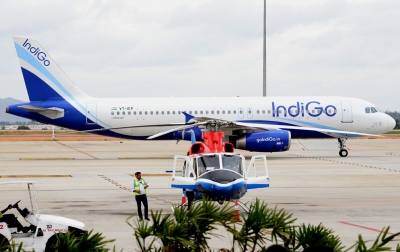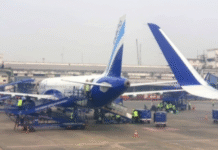New Delhi– Civil Aviation Minister Jyotiraditya M. Scindia on Tuesday termed the IndiGo Airlines order for a staggering 500 Airbus A320 family aircraft as another landmark in the country’s aviation industry.
Addressing the media here, Scindia expressed enthusiasm for the groundbreaking order. “India has once again set another landmark in the aviation industry,” he declared.
“IndiGo’s order for 500 aircraft from a single manufacturer is unparalleled, solidifying its status as a pioneer in the aviation sector. This momentous decision will not only revolutionise the domestic aviation market but will also have a profound impact on our nation’s economy,” he said.
Scindia went on to emphasize the economic benefits that the civil aviation industry brings to the country. “First Air India had placed 470 aircraft orders and now IndiGo. Every dollar invested in civil aviation yields $3.1 in terms of new growth, along with the employment multiplier effect,” he explained.
“For every direct job in civil aviation, there are 6.1 indirect jobs created in the sector. This highlights the immense dividends that accrue from the ever-expanding civil aviation sector,” he said.
The minister’s remarks shed light on the significant role that the aviation industry plays in stimulating economic growth and generating employment opportunities.
IndiGo’s order comprises a combination of A320NEO, A321NEO, and A321XLR aircraft, scheduled to be delivered between 2030 and 2035.
The purchase agreement was finalised at the Paris Air Show 2023, with representatives from IndiGo and Airbus present on Monday.
In a statement on Monday, IndiGo confirmed that the engine selection and the precise mix of A320 and A321 aircraft will be determined in due course.
Currently operating a fleet of over 300 aircraft, IndiGo already has outstanding orders for 480 aircraft, expected to be delivered by the end of this decade.
With this new firm order for 500 aircraft in the 2030-2035 time-frame, IndiGo’s order-book now boasts almost 1,000 aircraft, securing a steady stream of deliveries well into the next decade. (IANS)







